Eastern And Western Philosophy
₹187.00
| Author | Dr. V.N.K. Reddy |
| Publisher | Bharatiya Vidya Prakashan |
| Language | English |
| Edition | 1980 |
| ISBN | - |
| Pages | 216 |
| Cover | Hard Cover |
| Size | 14 x 2 x 22 (l x w x h) |
| Weight | |
| Item Code | TBVP0294 |
| Other | Dispatched in 1-3 days |
10 in stock (can be backordered)
CompareDescription
Eastern And Western Philosophy The aim of text-book writing has assumed a new status in the modern ways of knowing and acquisition of accurate knowledge about the problems related. All new writing is an attempt to make relevant the subject-matter to the growing consciousness of the age. Otherwise, all our attempts will be meaningless and redundant in many respects. No one can claim that he has fulfilled his job fully in this direction unless he sees the problems and their subject-matter from near to far and from far to near angles.
An Introduction to Eastern and Western Philosophy is an attempt to enter into these evaluations from academic standpoint and also from the point of view of practical and applied approach and social application. There is nothing new about the subject- matter in the book, but there is a clear-cut attempt to evaluate the ideas and concepts from a comparative angle. There is no such philosophy which is isolated from the rest of the world-inclinations, tendencies and reflections. All philosophies including the sources of knowledge, the ontological truths, the epistemological delineations are not different in their claims. For this reason, to derive the essence of axiological origins and conclusions in the light of new interpretations and changing circum-stances becomes inevitable for a text-book writer.
For text-book writing today is no more a chronological derivation and historical interpretation. There is, in fact, a transforming goal in spite of the basic objectivity. Nonconformity is good, but today it has become lifeless and meaningless in its nature, implication and character. There are two opinions which seem to be quite significant currently. Some text-book writers who have been following the classical order would like to maintain the spirit of objectivity and historicity without any reference to social situations and growing complexities in the realm of knowledge. On the other hand, the other group of writers who are overwhelmed with the new social order and dominated by the everemanating ideals of social dynamics are, however, bound to take the other extreme view in their writings. Their text-books have become reflections of the problems which pertain to the ideas of social realism and even everyday events and life-situations. In this background, it becomes all the more difficult for any new attempt because of the dangers of ‘critical reflections’ of the established writers and committed faiths. In fact, we seem to be in such a situation; we can neither neglect the earlier stand point of historicity nor we are in a position to escape from the over-riding problems of existential situations. To strike a golden mean between the two becomes a compromise and again exclusively committing to any one of the above approaches, nevertheless, becomes a conformity. In this context, probably, people are afraid of attempting the text book writing lest it should be a sort of ‘breach of privilege’ on their part.
The present work An Introduction to Eastern and Western Philosophy is more or less an integral evaluation of parallelisms of thought in East West philosophy on the concerned subjects of study. The author is well aware of the fact that it has failed to be an exhaustive survey of the diverse problems of philosophy. It is mostly based upon the common curricula prescribed for degree students of Indian universities. Though it tends to cover the diversity of con- temporary philosophical stand-points, approaches and problems, yet it is not free from the common academic ailments like ‘insufficiency’, ‘expediency’ and emphasis on ‘particularity. Nevertheless, in writing the present book of this nature, I feel the lacuna of providing the readers with substantial selections from the influential philosophical writings of great builders of thought, system-founders and leaders of intellectual and social revolutions from the point of view of history of philosophy. The present writing is a sincere attempt for an indigenous evaluation and interpretation of the presistent issue in philosophy. East-West evaluation is not, however, a new venture altogether. But the fact is that the readers need ‘new insights’ through similarities and distinctions.

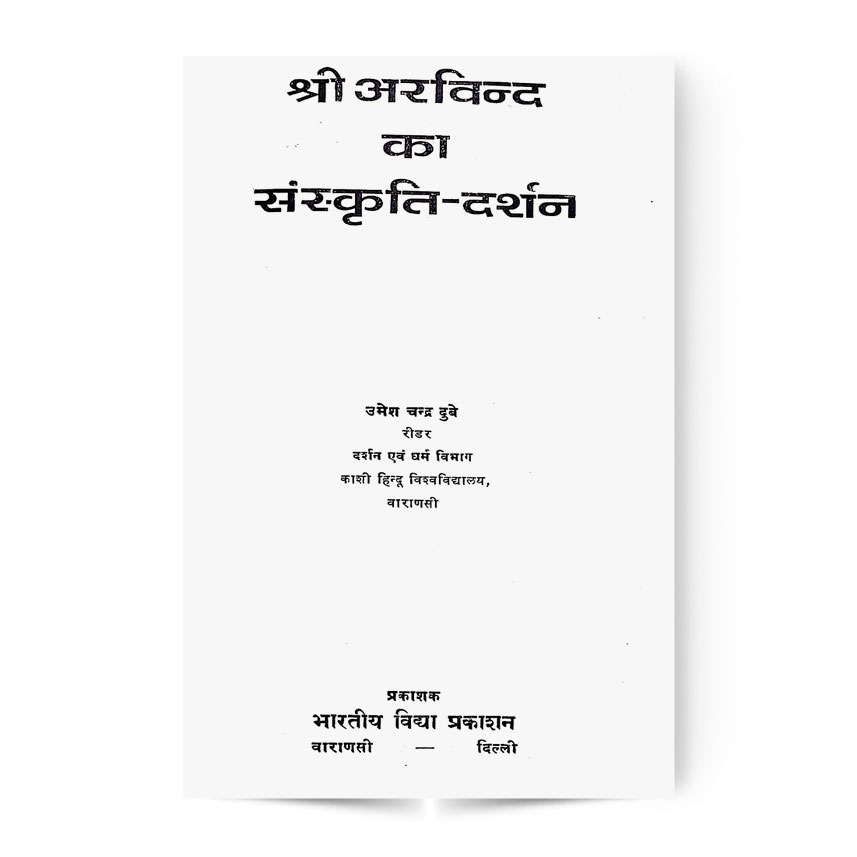
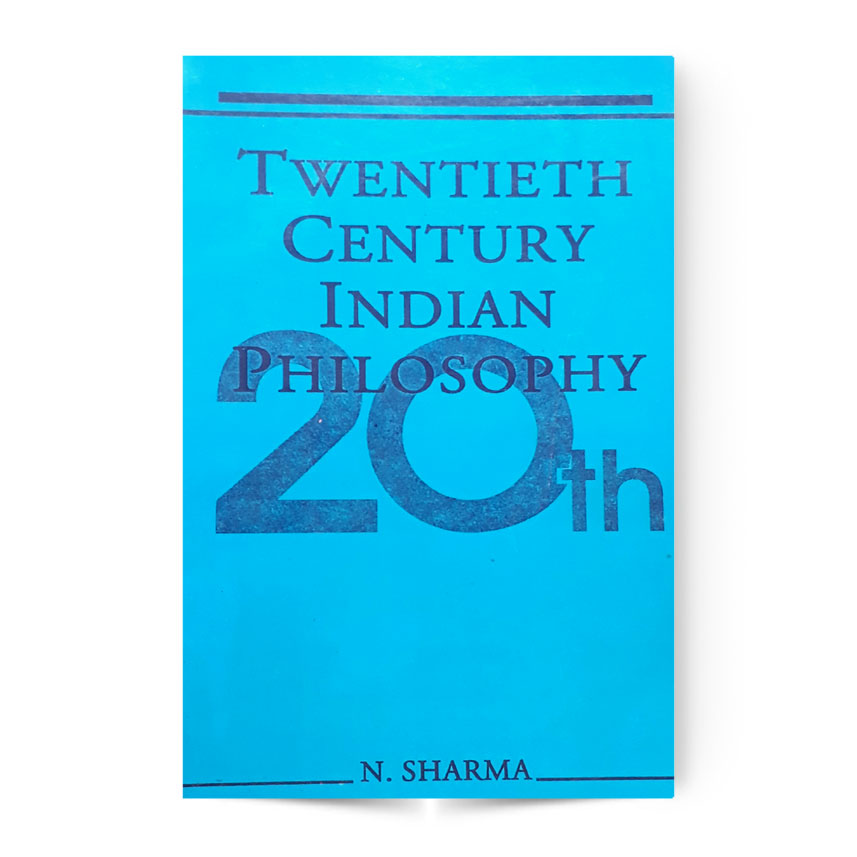
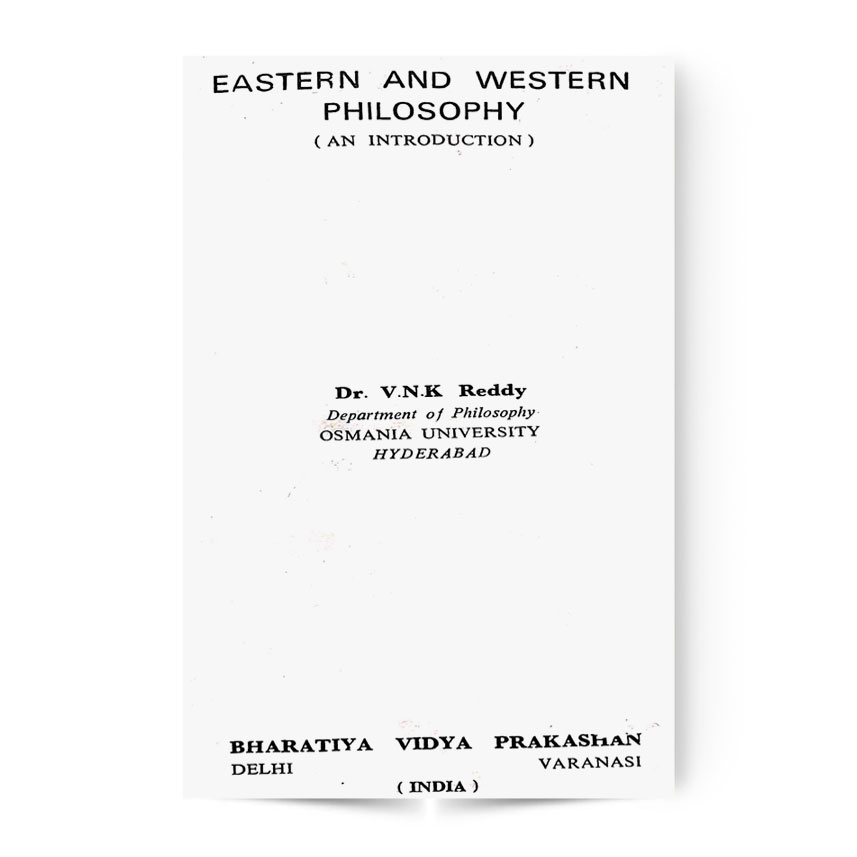
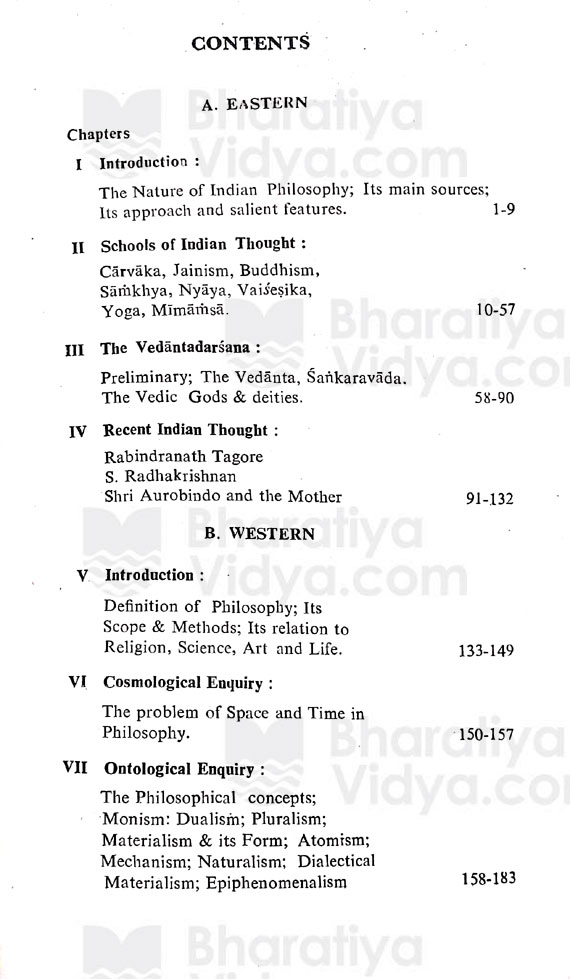
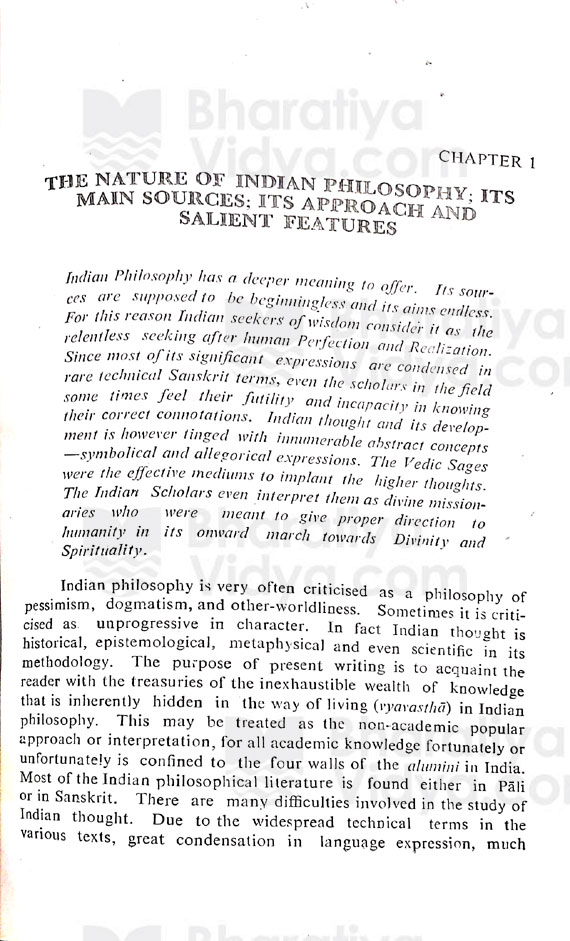
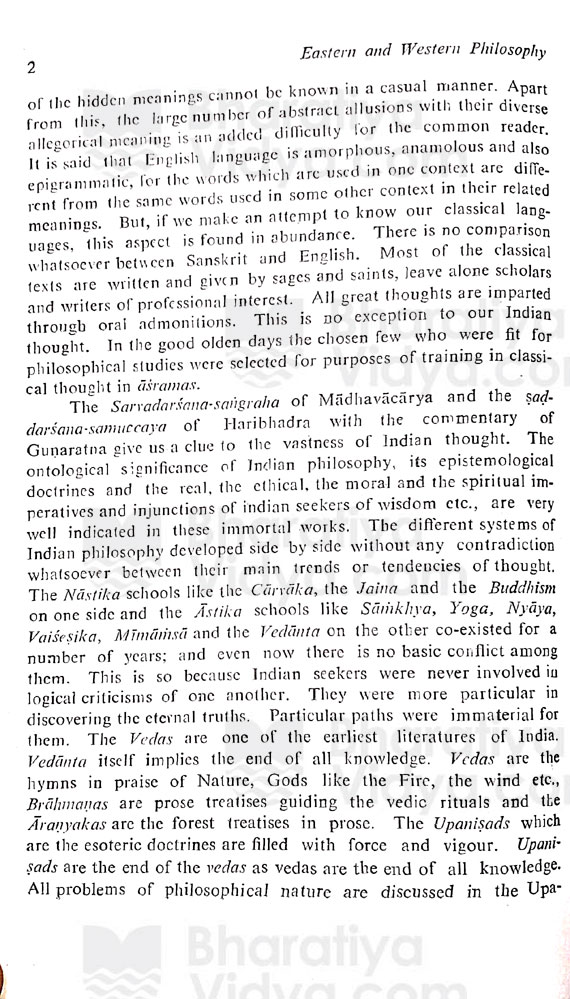
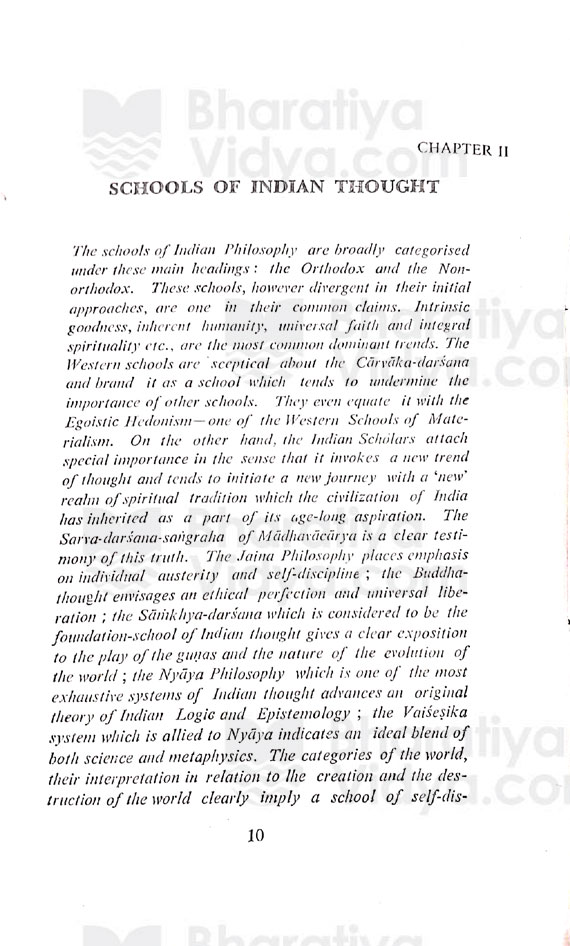
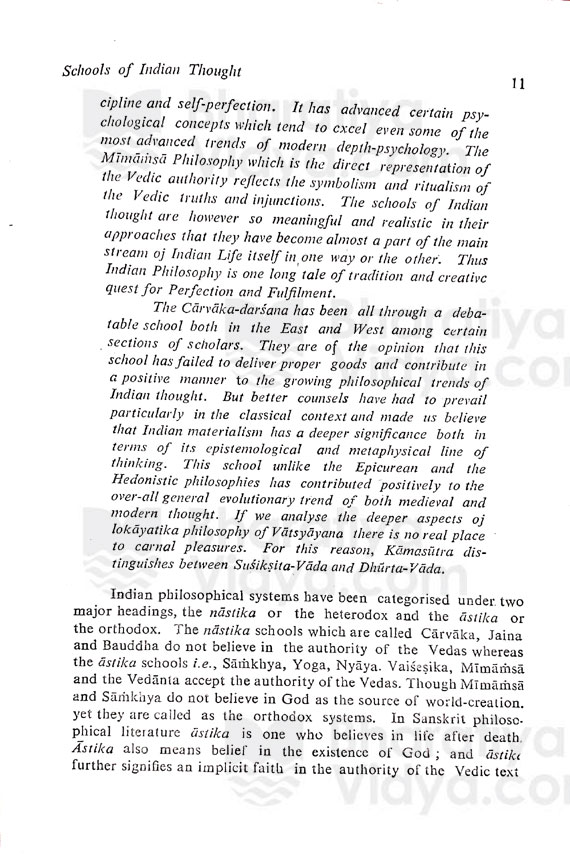
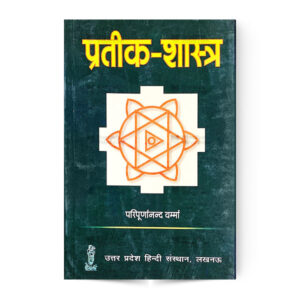
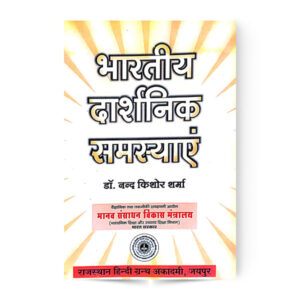

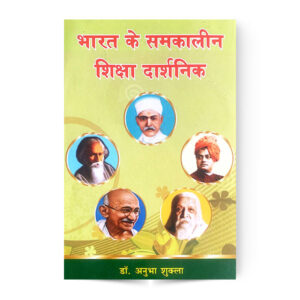
Reviews
There are no reviews yet.